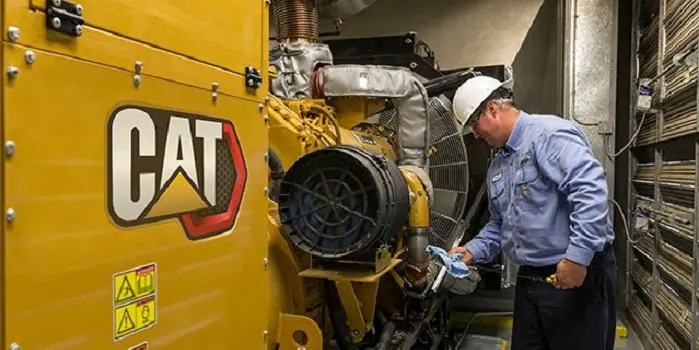
How Often Should Commercial Generators Be Tested?
Category: Equipment and Solutions
You probably don’t spend much time thinking about your business’s generator. But if a power outage occurs, you’ll need this crucial piece of equipment to keep the electricity flowing and minimize disruptions to your operations. Properly functioning generators also help keep everyone safe until the utility company can restore the power supply.
Since you typically don’t use your backup generators unless you lose grid power, how can you be sure they’ll be ready to perform when you need them? Regular testing is crucial for ensuring your equipment remains in peak operating condition.
How Often Should You Exercise an Industrial Generator?
Think of testing your generator as giving it exercise. Just as the human body needs exercise to keep it healthy, commercial generators must function periodically to prevent wet stacking, a condition where unburned diesel fuel accumulates in the exhaust system and damages the injectors. Testing the generator also keeps the systems lubricated, recharges the battery and stops moisture buildup that can ultimately impede the equipment’s performance.
Commercial backup generator testing should occur with and without a load. Operating the unit with a load means you’re using it under the conditions that would exist in a real-world scenario, such as when an outage occurs and you need your backup power source to run industrial equipment such as chillers, motors, lighting and fans.
In general, you should conduct no-load testing on a weekly or monthly basis. Load testing should occur at least monthly or quarterly. Automating the process ensures your generators receive regular exercise and helps you maintain the appropriate schedule.
How Long Does a Generator Test Last?
While 30 minutes is the industry standard, the appropriate duration of a power generation test can depend on several factors. For instance, load tests typically last longer than when exercising under no-load conditions. The unit’s manufacturer should offer more specific guidelines regarding the length and frequency of the process and the general testing conditions.
Complement Testing With Timely Generator Maintenance
While you’re testing your commercial generator, you should also perform preventive maintenance to detect and troubleshoot minor mechanical issues. Routine maintenance can reduce the likelihood of a significant mechanical issue that keeps the unit from performing when a power emergency occurs. It can also prolong the equipment’s life span, lengthening the time between costly replacements.
Your commercial generator maintenance checklist should include the following steps:
- Check the oil and coolant levels
- Perform fuel sampling to detect the presence of moisture that could cause fuel degradation
- Replace serviceable parts like fuel filters, spark plugs and air filters
- Clean and test the battery
- Inspect the drive belts for cracks, wear and other signs of damage
- Check for signs of diesel or coolant leaks
NMC Cat Can Meet Your Commercial Generator Testing Needs
Do you operate a business in Nebraska or Pottawattamie County, Iowa? Your nearest NMC Cat can help keep your generators in prime condition. Our experienced power systems technicians can perform regular testing and maintenance that fits your time frame and budget.
Contact our team today to learn more.
